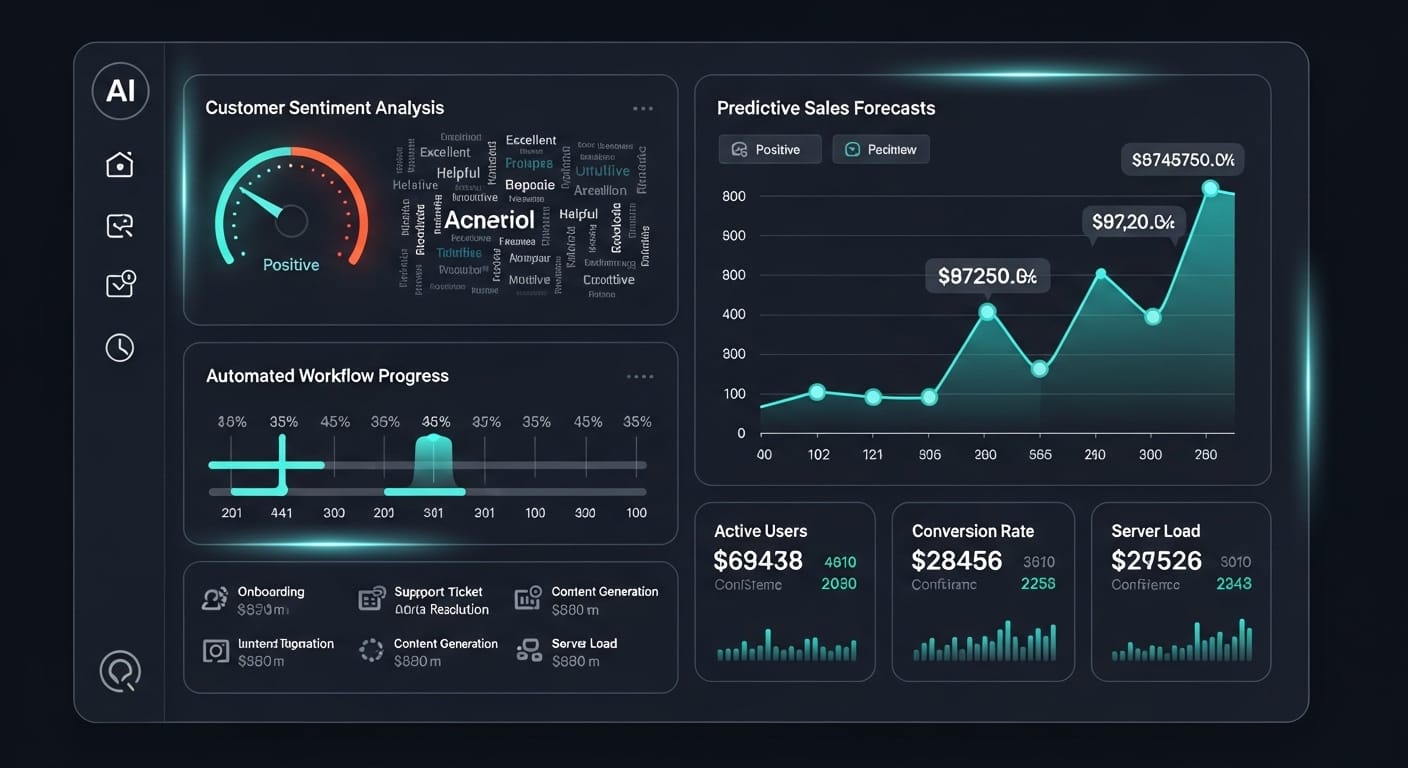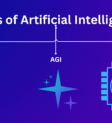AI in SaaS: Reshaping the Future of Business Technology
The landscape of Software as a Service (SaaS) is undergoing a profound transformation, driven by the relentless advancement of Artificial Intelligence (AI). What was once considered a futuristic concept is now a fundamental component, reshaping how businesses operate, innovate, and interact with their customers. The integration of AI into SaaS platforms is not merely an enhancement; it is a revolution that promises unprecedented levels of efficiency, personalization, and strategic insight.
The AI SaaS market is experiencing rapid growth, with projections estimating its value to soar from approximately $71.54 billion in 2024 to $775.44 billion by 2031, reflecting a remarkable compound annual growth rate (CAGR) of 38.28%. This surge underscores the increasing demand for AI-driven SaaS products, compelling businesses to explore AI-powered solutions to gain a competitive edge and make smarter decisions. In fact, a significant majority of SaaS companies, around 92%, now embed AI into their core products, a substantial increase from 65% in 2023. Furthermore, 95% of organizations are expected to utilize AI-powered SaaS applications by 2025.
The AI Revolution in SaaS: A New Era
AI helps SaaS platforms operate faster, smarter, and more efficiently, making them invaluable for businesses. The benefits are multifaceted, extending from automating repetitive tasks to providing deep data-backed insights and enhancing customer experiences. Businesses and users alike gain significant advantages from this integration, leading to lower costs, higher operational efficiency, and more informed decision-making.

Key Areas Where AI is Reshaping SaaS
Enhanced Customer Experience and Personalization
AI is at the forefront of delivering highly personalized experiences within SaaS applications. AI-powered chatbots provide instant support, resolving customer queries efficiently and often offering personalized recommendations. This not only improves customer satisfaction but also frees up human agents to focus on more complex issues. Intelligent recommendation engines, driven by AI, analyze user behavior to offer tailored product suggestions and content, significantly boosting engagement and conversion rates.
Streamlined Operations and Automation
One of the most immediate impacts of AI on SaaS is the automation of routine and time-consuming tasks. From data entry and report generation to scheduling and lead assignment, AI streamlines workflows across various business functions. This automation leads to a significant reduction in manual work, allowing teams to allocate their resources to strategic initiatives rather than repetitive processes. AI-driven marketing automation, for instance, can personalize messaging and optimize campaign performance.
Predictive Analytics and Business Intelligence
AI’s ability to analyze vast amounts of data at speed and identify patterns is transforming business intelligence. SaaS platforms now leverage AI for advanced predictive analytics, enabling companies to forecast market trends, anticipate customer churn, and optimize marketing and sales strategies with remarkable accuracy. This proactive approach allows businesses to make data-driven decisions, anticipate needs, and respond to market changes more effectively.
Advanced Security and Risk Management
With the increasing volume of data and the sophistication of cyber threats, AI has become an indispensable tool for enhancing SaaS security. AI-powered systems can detect anomalies, identify potential threats, and prevent data breaches in real-time, safeguarding sensitive information. Investing in AI security features is a long-term strategy that builds user trust and mitigates potential losses from cyberattacks. To learn more about robust security measures, consider reading about key lessons for SaaS security.
Top AI Tools Transforming SaaS Today
The “Tool Roundup” aspect of AI in SaaS isn’t about naming a few specific products, but rather highlighting the categories of AI-powered solutions that are becoming integral to modern business operations. These tools, often embedded within broader SaaS platforms, leverage AI to provide specialized functionalities:
- AI-Powered CRM and Sales Tools: These integrate AI for smart lead scoring, sales forecasting, and automated follow-ups, allowing sales teams to focus on high-potential opportunities. Zoho AI, for example, uses machine learning and natural language processing to generate lead scores and sales forecasts.
- AI for Content Creation and Marketing: Generative AI tools are revolutionizing how businesses create content, from blog posts and social media updates to ad copy. They assist in drafting, optimizing for SEO, and personalizing content at scale. This area also includes AI for digital marketing analytics, helping to refine strategies and improve ROI. Explore more about the latest AI innovations transforming digital marketing.
- AI for Customer Support: Beyond basic chatbots, advanced AI in customer support uses natural language processing (NLP) to understand complex queries, provide accurate answers, and even perform sentiment analysis to gauge customer mood. Intercom’s Fin AI Agent is an example, learning from help articles and chat history to provide precise answers.
- AI for Development and Operations (DevOps): AI is assisting developers with code completion, bug detection, and automated testing, accelerating the software development lifecycle. In operations, AI monitors systems for anomalies, predicts potential issues, and optimizes resource allocation, ensuring smoother service delivery.

The Future Landscape: What’s Next for AI in SaaS?
The future of AI in SaaS promises even more sophisticated and integrated solutions. We can expect hyper-personalization to become the norm, with AI anticipating user needs before they even arise. The rise of Agentic AI, autonomous systems capable of proactive problem-solving and decision-making, will further redefine how businesses leverage software. These intelligent agents will work alongside human teams, automating complex tasks and managing intricate workflows with minimal oversight.
However, this rapid advancement also brings ethical considerations, such as data privacy, algorithm bias, and the impact on the workforce. SaaS providers will need to prioritize responsible AI development, ensuring fairness, transparency, and accountability in their AI-powered solutions.
Conclusion
AI is undeniably reshaping the SaaS industry, driving innovation, enhancing efficiency, and delivering unparalleled value to businesses and their customers. From automating mundane tasks to providing deep predictive insights and hyper-personalized experiences, the transformative impact of AI is evident across every facet of SaaS. As this technology continues to evolve, embracing AI-driven solutions will be crucial for any business aiming to remain competitive and thrive in the digital age.
For organizations looking to navigate this evolving landscape and harness the full potential of artificial intelligence, our team provides cutting-edge AI solutions, content marketing strategies, and technology consulting. We are dedicated to helping businesses innovate and grow by leveraging the power of AI effectively.



